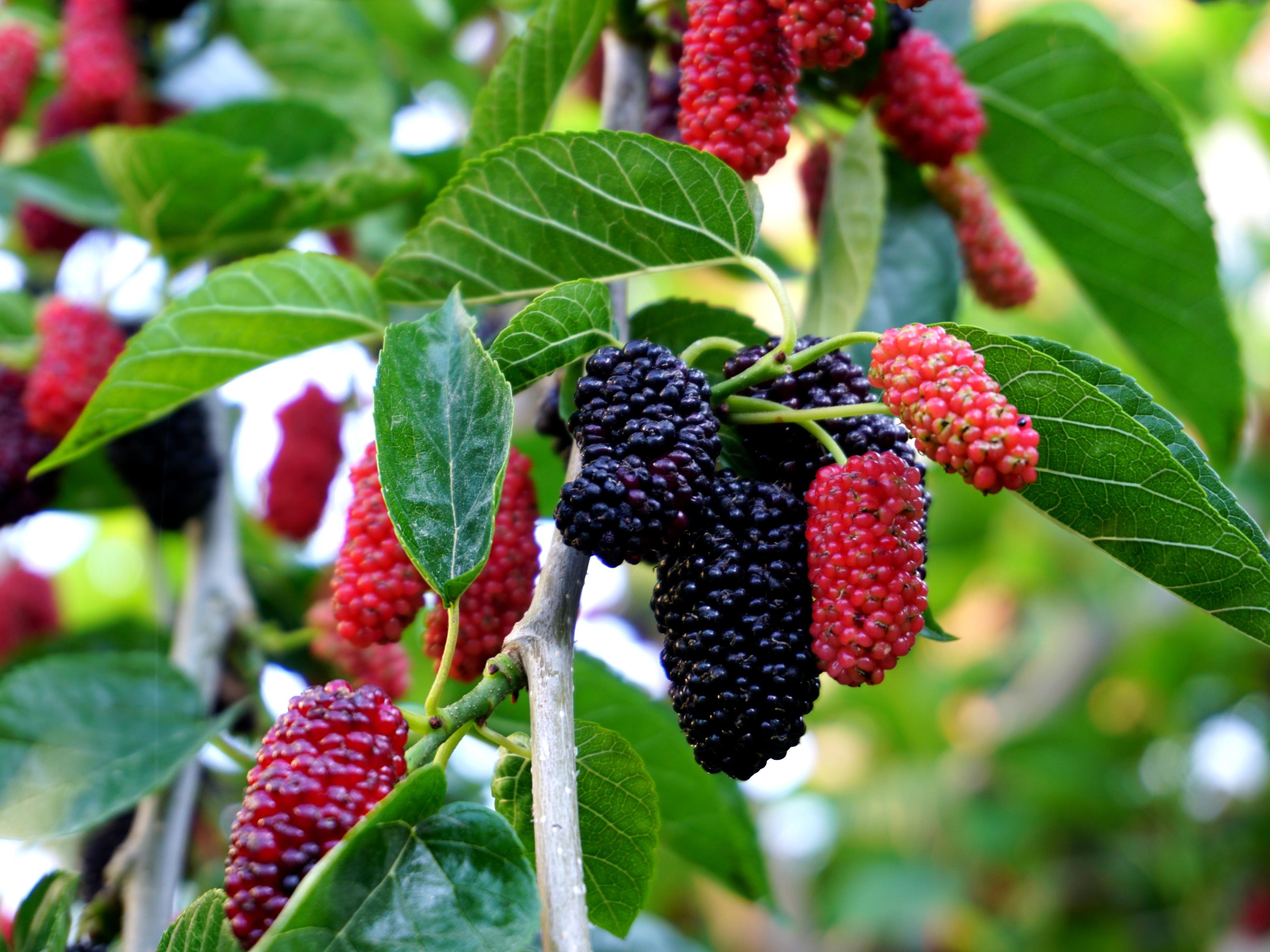Mulberries, derived from the Morus species of trees, are closely related to figs and breadfruit. These trees, traditionally cultivated in regions such as Asia and North America, are valued primarily for their leaves, which serve as the sole food source for silkworms.
With hues ranging from black, white, to red, mulberries are commonly processed into wine, fruit juice, tea, jam, or preserved foods. Alternatively, they can be dried for snacking purposes. Their delightful sweetness, coupled with their impressive nutritional content and numerous health benefits, is contributing to their increasing popularity worldwide.
Often likened to grapes in flavor and resembling blackberries in appearance, mulberries, also known as shahtoot, boast a rich concentration of essential nutrients and vitamins. Notably low in calories, with just 60 calories per cup, they make for a nutritious snack option.
The carbohydrates found in mulberries facilitate the conversion of sugar into glucose, providing cells with energy. Furthermore, mulberries contribute to iron intake, supporting tissue oxygenation. They also contain Riboflavin, or vitamin B-2, which acts as an antioxidant, protecting tissues from oxidative stress and aiding in oxygen transport throughout the body.
Given their remarkable nutritional profile, mulberries are considered versatile assets in the realm of fruits. Let’s explore some of the various benefits they offer.
Benefits of Mulberry
1. Boosts Immune System
Mulberries harness the alkaloids within macrophages to activate them, enhancing our immunity and keeping the immune system active (1). Additionally, the presence of Vitamin C further reinforces immunity.
2. Strengthens Bone Tissue
Combining vitamin K, calcium, and iron forms an optimal blend of nutrients crucial for fortifying bone tissues and overall bone health. Remarkably, mulberries are abundant in all three. These essential nutrients aid in reversing bone degradation and safeguard against bone disorders like osteoporosis and arthritis (2).

3. Enhance Cholesterol Profile
Cholesterol, a vital fatty compound found in every cell, is essential for bodily functions. However, elevated levels of cholesterol in the bloodstream are associated with heightened risk of heart disease.
Studies conducted on animals indicate that mulberries and extracts derived from them possess the ability to diminish excessive fat and lower cholesterol levels. Moreover, they may improve the balance between LDL (bad) and HDL (good) cholesterol. Additionally, findings from test-tube experiments suggest that mulberries may inhibit the accumulation of fat in the liver, potentially mitigating the risk of fatty liver disease.
4. Supports Cognitive Function
Mulberries play a vital role in maintaining brain health by providing the body with much-needed calcium. They help preserve cognitive function, ensuring a youthful and alert mind while also potentially warding off conditions like Alzheimer disease (3).
5. Enhances Liver Function
The liver benefits from the strengthening properties of mulberries, thanks to their iron content, which aids in maintaining liver health. Consuming mulberries nourishes and purifies the blood within the liver (4).
6. Mitigate Cancer Risk
Increased oxidative stress within the body has been associated with cellular and tissue damage, consequently heightening the risk of cancer. For centuries, mulberries have been utilized in traditional Chinese medicine for their purported anticancer properties. Emerging research suggests that these reputed benefits might have scientific underpinnings.
Studies suggest that antioxidants present in mulberry juice may mitigate oxidative stress, thereby potentially lowering the risk of cancer. It’s important to note, however, that while mulberries show promise in this regard, there’s no evidence suggesting they offer greater cancer risk reduction compared to other fruits or berries.
7. Guards Against Cold and Flu
Mulberries, especially white mulberries, possess astringent properties that combat bacteria, effectively preventing and treating cold and flu symptoms. Additionally, their flavonoid content contributes to this protective effect (5).
8. Anti-Inflammatory Properties
Rich in resveratrol, mulberries exhibit potent anti-inflammatory properties. Their anthocyanin content further aids in inflammation prevention, offering a natural alternative to conventional allopathic drugs (6).
9. Regulate Blood Sugar Levels
Individuals with type 2 diabetes face challenges in managing blood sugar levels, particularly following carbohydrate consumption. Mulberries contain a compound known as 1-deoxynojirimycin (DNJ), which inhibits an enzyme responsible for carbohydrate breakdown in the gut. Consequently, mulberries could potentially aid in regulating blood sugar levels after meals. However, further research involving human subjects is necessary to draw definitive conclusions (7).
Adverse Reactions and Individual Considerations
While allergic reactions to mulberries are infrequent, it’s noteworthy that pollen from mulberry trees has been linked to allergic responses in some sensitive individuals. Moreover, if you have a sensitivity to birch pollen, there’s a possibility of experiencing cross-reactivity with mulberries.
